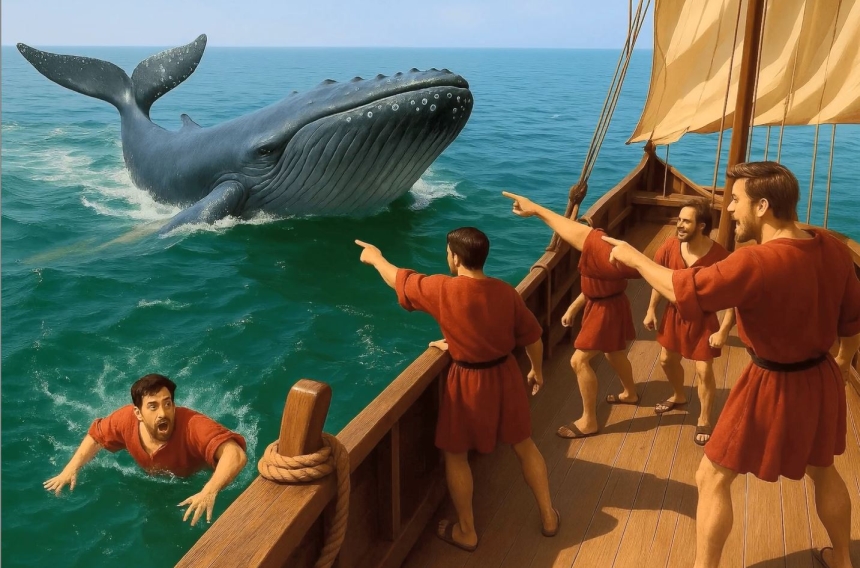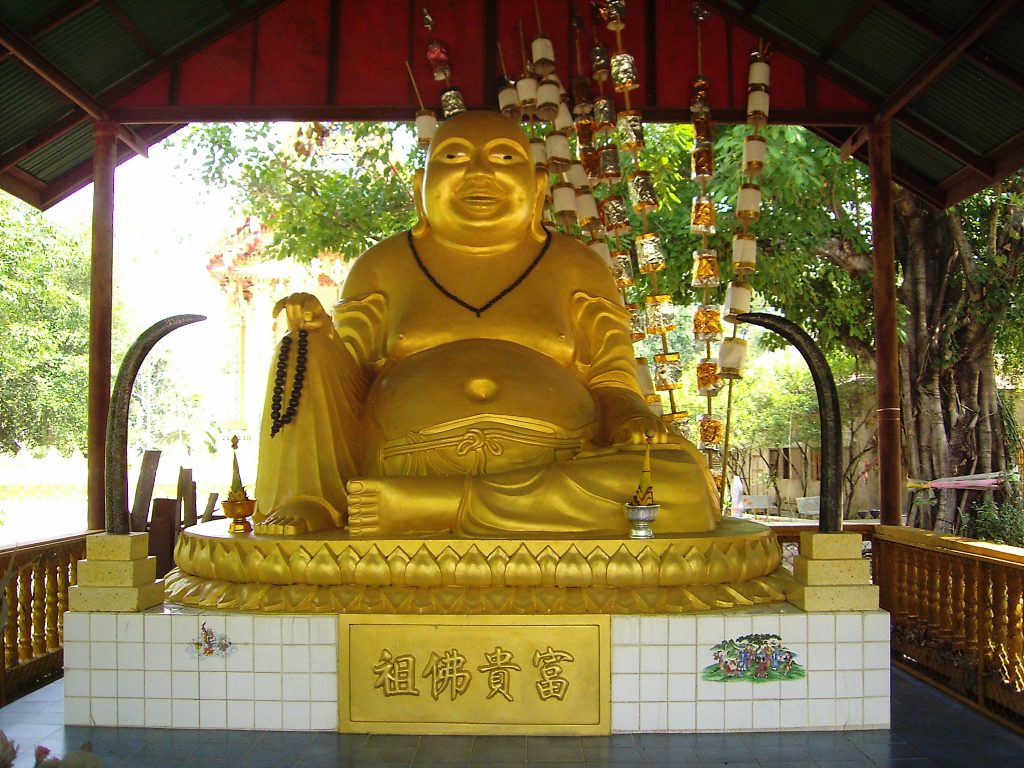
In China, Japan, and Vietnam, one of the most famous Gods of Oriental religion is the Hotei. He is the God of contentment, happiness, wealth, money, good luck, prosperity, and material abundance. This deity is the patron saint or patron God of fishermen, restaurant owners and workers, and bar owners and bartenders. This God is a very recognizable Oriental deity because of being a bald, obese man with his cheerful; laughing facial expression, dressed in a robe, open in front, showing a large, protruding belly.
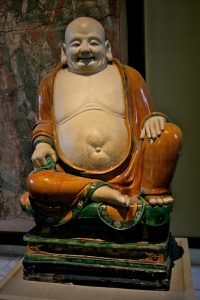
There are many thousands of statues of the Hotei. Various statues have been carved out of assorted types of stone; some stones that are common as hard sandstone or soapstone; some stones as very costly as jade, some statues are made of wood, common wood as pine wood and costly hard wood as oak, and some statutes are made from brass, bronze, or copper that have been casted from metal dies.
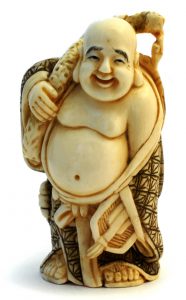
There are Hotei statues that are many centuries old. Some statues show him carrying a large, bulging cotton or lien bag on his back, from which, in folklore stories, he would distribute many gifts to small children and people who would be poor and needy. These gifts would include things as foods, candies, or cache coins (coins that were made with a square hole in the middle for stringing them together for easy carrying and to help prevent dropping the coins) to help people financially.
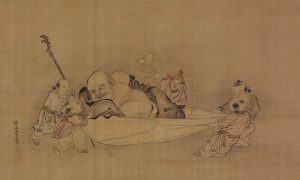
The Hotei God reminds Western Hemisphere inhabitants of the legendary Santa Claus who is an obese man, carrying a big bag of goodies and gifts to distribute to young children, the poor, and the needy.
The name “Hotei”, also known as “Hotei-osho” is Japanese for “cloth bag”. In Chinese he is known as “Budai”. In Vietnamese, he is known as “Bo Dai”.
The real historical personage behind the Oriental Hotei God is based upon a wondering around; often homeless 10th century Chinese Zen Buddhist monk and later a priest hermit Budai or Budaishi or Pu-Tai in Chinese who is said to be a reincarnation of Miroku Budhisattva (Maitreya in Sanskrit), the Buddhist Savior of the Future(Giraud 404). This identity explains why the Hotei is often called “The Fat, Laughing Buddha” . The birthdate of the Hotei is unknown, but he died on March of either 916 or 917 AD. He could quote Buddhist texts verses almost non stop. Some people regarded him as eccentric, but kind-hearted. It is said that the Hotei would eat meat and fish even though such foods were taboo or anathema for Buddhist monks and Buddhist priests to even think of eating.
Many Oriental people have at least one statue of this Oriental deity in their households in order to bless the house and its occupants with peace, joy, and wealth. There is a centuries old custom in the Orient, while making a wish, to rub the belly of the Hotei statute to make the wish come true.
Many people confuse the Hotei God with the slim; sometimes emancipated Buddha, Siddhartha Gautama, Ahakyamuni Buddha; “The Enlightened One” , who lived in Nepal and India in the 6th century B.C. and was later deified.

